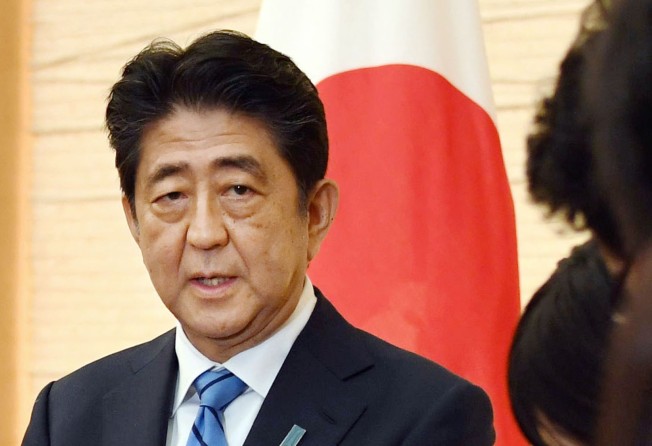Abe leads Japan down a dangerous path
Prime minister says North Korean threat is behind his early election call, but he only risks further isolating China and South Korea, nations he should be working with

Japanese Prime Minister Shinzo Abe has numerous reasons for dissolving the lower house of parliament and calling an election 14 months early. But behind his decision, more than any other issue, is his desire to push a militaristic agenda that will move Japan from its pacifist moorings. The manner in which he has called the vote leaves little room for much-needed debate. If handed a stronger mandate to rule, relations with China will become even colder.
The security threat posed by North Korea – it has fired two missiles over Hokkaido in recent months – has understandably worried Japanese. Abe’s tough rhetoric has caused a surge in opinion poll ratings, providing an opportunity to capitalise politically while giving new life to plans to revise Article 9 of the constitution, which limits Japan’s military to being a self-defence force. He and other nationalists in his Liberal Democratic Party want a clause added that would create a fully fledged fighting force while keeping intact a renunciation of war. China and others in Asia brutalised by Japan before and during the second world war have good reason to object.
A record US$48 billion defence budget was put forward last month with provisions for missile and radar systems and weapons research. Also included are plans for a system such as the Terminal High Altitude Area Defence missile shield installed by the United States in South Korea, which has caused a serious rift between Beijing and Seoul due to radar capabilities that enable surveillance of the Chinese military. The wedge between China and Japan would also deepen with such a facility.
In announcing an election for October 22, Abe said he was seeking a new mandate to deal with the North Korean threat. He also proposed putting money raised by an increase in consumption tax into child-rearing schemes. But with his party and its coalition partner having a two-thirds majority in the lower chamber, these were not convincing arguments for an early poll. The main opposition parties are in disarray and have been caught off guard while a more threatening challenger, the Party of Hope led by popular conservative Tokyo governor Yuriko Koike, was formed only on Monday. The poll also prevents meaningful debate on serious issues, among them Article 9 and graft scandals in Abe’s cabinet.
North Korea’s provocations are best dealt with by negotiations between Pyongyang and Washington, not Japanese constitutional revisions. There are arguably more pressing matters Abe should be addressing, including economic and fiscal policies and social welfare reforms. He is taking Japan down a dangerous path of confrontation with China and South Korea, nations he should be working with, not isolating.